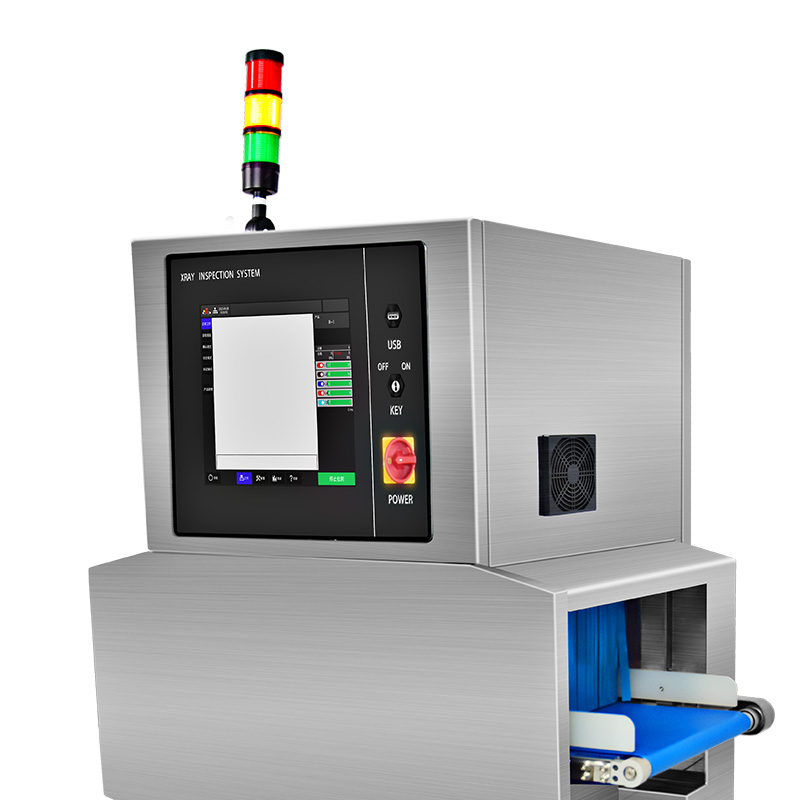Views: 0 Author: Site Editor Publish Time: 2025-08-14 Origin: Site








Does urgent care do x rays? Have you ever wondered if urgent care centers offer X-rays? With quick access to medical care, many people turn to urgent care for immediate attention. X-rays play a crucial role in diagnosing injuries and conditions like fractures and joint pain.In this post, we’ll explore whether urgent care centers provide X-ray services, how they work, and when to choose them over other options.

Urgent care centers are healthcare facilities that provide immediate treatment for non-life-threatening conditions. They offer a convenient option for people who need care but can't wait for an appointment with their primary doctor.
Urgent care centers handle a wide range of health issues, including:
Minor injuries like sprains, strains, and fractures
Cold and flu symptoms
Infections, such as ear or urinary tract infections
X-rays to diagnose fractures, joint issues, and chest conditions
Vaccinations and health screenings
Urgent care is designed for non-emergency situations that still require prompt attention. Unlike emergency rooms, which deal with life-threatening conditions, urgent care centers focus on minor injuries and illnesses. They also provide quicker, more affordable care compared to hospitals.
While primary care doctors manage long-term health, urgent care centers are perfect for unexpected issues that can't wait for an appointment. They typically have shorter wait times and don't require scheduled visits.
X-rays are a type of imaging technology used to view the inside of the body. They work by passing a small amount of radiation through the body to create images of bones and tissues. Dense structures, like bones, block the radiation and appear white on the X-ray film, while softer tissues show up in various shades of gray.
X-rays are vital for diagnosing several common conditions:
Fractures: Identifying broken bones, such as wrist, ankle, or rib fractures.
Joint Injuries: Helping detect dislocations, sprains, and arthritis.
Chest Conditions: Diagnosing lung infections, such as pneumonia, or identifying rib injuries.
X-ray imaging offers several key benefits in urgent care:
Quick Diagnosis: It helps urgent care providers diagnose issues immediately, speeding up treatment.
Accurate Results: X-rays provide clear images, allowing for accurate diagnosis and decision-making.
Convenience: In many urgent care centers, X-rays are done on-site, eliminating the need for a separate visit to a radiology center.

Yes, most urgent care centers offer X-ray services. This is one of the reasons why they’re such a convenient choice for quick, non-life-threatening health issues. Having an X-ray machine on-site allows urgent care centers to diagnose conditions on the spot, which speeds up treatment.
Urgent care centers typically offer the following types of X-rays:
Bone X-rays: For diagnosing fractures, sprains, and dislocations.
Chest X-rays: Used to identify lung infections or rib injuries.
Abdominal X-rays: Help detect issues like kidney stones or other internal concerns.
Many urgent care centers now use digital X-ray technology. This advancement offers several benefits:
Faster results: Digital X-rays provide immediate images, allowing quicker diagnoses.
Clearer images: They deliver sharper, more detailed images compared to traditional film X-rays.
Easier sharing: Results can be easily shared with specialists or other medical professionals when needed.
Urgent care centers are an excellent choice for quick and efficient X-ray services. Here’s why many people choose them over other options:
No appointment is needed at most urgent care centers. You can simply walk in and get seen, making it a fast option for unexpected injuries or illnesses. This is especially helpful when you need an X-ray without delay.
X-rays at urgent care centers are typically much cheaper than those at emergency rooms. If your condition isn’t life-threatening, urgent care provides affordable imaging without the high ER costs.
At urgent care, you can get both your X-ray and diagnosis on the same visit. Once the X-ray is taken, the provider reviews the images and starts treatment right away, saving time and hassle.
Most urgent care centers employ licensed radiologic technicians on-site. This ensures that the X-rays are taken correctly, providing accurate images for quick and reliable diagnoses.
Urgent care centers are equipped to handle a wide variety of injuries and conditions, and X-rays play a crucial role in diagnosing many of these. Here are some of the most common reasons why you might need an X-ray:
X-rays are the go-to method for identifying fractures and bone injuries. They provide clear images of broken bones, helping doctors determine the severity of the injury.
Common fractures treated at urgent care include:
Wrist fractures from falls
Ankle fractures due to sports injuries or accidents
X-rays are used to diagnose dislocations, sprains, and other joint-related injuries. They help visualize the bones in the joints to confirm if any bones are out of place or damaged.
Joint pain is often evaluated by X-rays to check for:
Dislocations
Sprains and tears in ligaments
X-rays are essential for diagnosing rib fractures or chest conditions such as lung infections. If you’ve experienced a fall or trauma to the chest, an X-ray can help rule out damage to internal organs.
Rib fractures can be easily spotted through chest X-rays.
Lung infections, such as pneumonia, can also be diagnosed with chest X-rays.
X-rays are often used to assess abdominal pain or discomfort. They can help detect conditions such as kidney stones or the presence of foreign objects in the digestive tract.
Kidney stones are often visible on abdominal X-rays.
Foreign objects, like swallowed items, can also be detected using this imaging method.
If you need an X-ray at urgent care, it’s a quick and straightforward process. Here’s what you can expect at each step:
Before the X-ray, you may be asked to remove any jewelry or metal objects. These items can interfere with the image quality, so it’s best to leave them at home or take them off during the procedure.
What to wear: You’ll likely be asked to wear a gown for the X-ray to avoid clothes blocking the view of the area being imaged.
During the X-ray, the technician will position you in a way that gives the clearest image of the area in question. You may need to stand, sit, or lie down, depending on the type of X-ray.
Exposure time: The X-ray exposure is brief, lasting only a few seconds.
Role of the X-ray technician: The technician will guide you to ensure the correct positioning and may take multiple images to get the best view of the area.
After the X-ray, the images are reviewed by a doctor, who will explain the findings.
Reviewing results: In many cases, you will receive the results on the same visit, allowing for immediate treatment or next steps.
Follow-up care: If needed, you may be referred to a specialist or provided with a treatment plan based on the results.
When it comes to the cost of X-rays, urgent care centers are often much more affordable compared to emergency rooms. Here's a breakdown of what to expect:
X-rays at urgent care centers generally cost less than at emergency rooms. While prices can vary depending on location and the type of X-ray, urgent care centers typically offer more affordable rates.
Emergency room X-rays can cost several hundred dollars, especially when combined with hospital fees.
Urgent care X-rays usually cost a fraction of the ER price, making them a more cost-effective option for non-life-threatening issues.
Most urgent care centers accept insurance, including major providers. If you have insurance, your plan will typically cover X-ray costs after your deductible or co-pay. It's always a good idea to check with your urgent care provider about specific coverage.
In-network insurance usually results in lower out-of-pocket costs for X-rays.
For those without insurance, many urgent care centers offer self-pay options. These typically come with discounts or reduced rates for those who pay upfront. It's worth asking about available discounts for uninsured patients.
Discounted rates are often available for patients who pay the full cost at the time of service.
Urgent care centers offer X-ray services that differ from those at hospitals in several ways. Here’s how they compare:
Cost: X-rays at urgent care centers are usually more affordable than hospital imaging, making them a better option for minor injuries and non-critical conditions.
Convenience: Urgent care centers focus on providing quick and easy services. They often have shorter wait times for imaging compared to hospitals, where patients might wait longer due to emergencies.
Urgent care centers are designed for situations that aren’t life-threatening but still require quick attention. For non-urgent injuries or illnesses, they provide faster and more cost-effective care than hospitals, where emergency cases take priority.
Urgent care centers typically offer walk-in X-ray services, meaning you don’t need an appointment. This makes it a faster option compared to hospitals, where you might have to schedule a visit or wait much longer for non-emergency imaging.
Here are some frequently asked questions about getting X-rays at urgent care:
Yes, most urgent care centers accept walk-ins for X-rays. You don’t need a referral to get an X-ray at these centers. Simply walk in, and a healthcare provider will assess your condition to determine if an X-ray is necessary. Some urgent care centers may also accept referrals from other doctors.
X-rays are generally safe, but they use a small amount of radiation. The risk is very low, especially for most people. X-rays are designed to be as safe as possible, and the radiation levels are minimal. Providers will only use X-rays when necessary, and the benefits of diagnosing injuries or conditions typically outweigh the risks.
Once your X-ray is taken, the results are usually reviewed quickly. In most urgent care centers, the provider will look at the images during your visit and provide results right away. If further analysis is needed, the results may be sent to a radiologist, but you can still expect a fast turnaround.
Pregnant women should generally avoid X-rays unless absolutely necessary. If you’re pregnant, be sure to inform the healthcare provider before the procedure. They may take extra precautions, like using a lead apron to shield the baby, or may recommend other imaging methods if an X-ray is not required.
While urgent care is great for minor injuries and conditions, there are certain situations where you should go to the emergency room instead. Here are some examples:
Severe fractures: If a bone is completely displaced or if there’s heavy bleeding, you should head to the ER.
Head injuries: If you’ve suffered a blow to the head and experience dizziness, confusion, or loss of consciousness, the ER is the safest choice.
Chest pain: If you have chest pain, especially with shortness of breath or nausea, it could be a sign of a heart attack and requires immediate attention.
Urgent care centers are perfect for less severe injuries or conditions that aren’t life-threatening. If you have minor fractures, sprains, or mild pain, urgent care can handle these cases efficiently, providing quick X-ray services without the long wait times of an ER.
Urgent care centers provide quick, affordable, and convenient X-ray services for non-life-threatening conditions. They offer a faster alternative to emergency rooms, with immediate results and lower costs. If you need an X-ray, consider visiting your local urgent care for efficient care. Don’t wait—get the treatment you need today!
A: Yes, most urgent care centers accept insurance for X-rays. Coverage varies based on your plan and provider.
A: While X-rays can identify some issues, they aren't typically used to detect cancer. Further testing may be needed for serious conditions.

